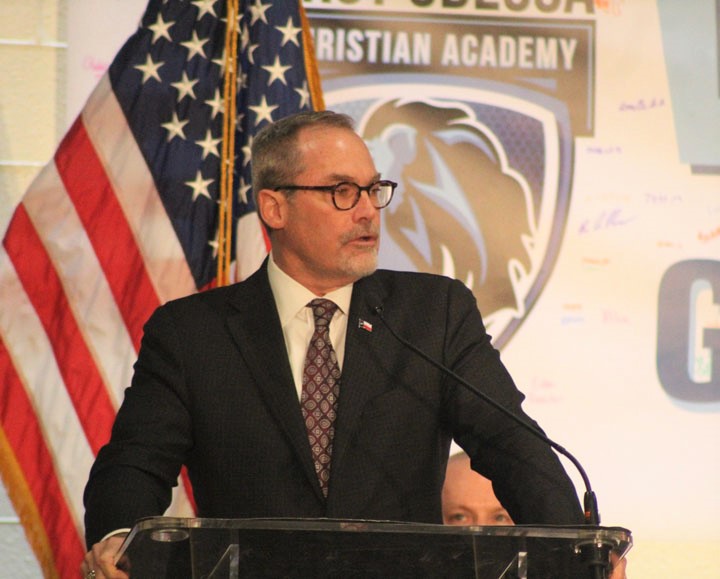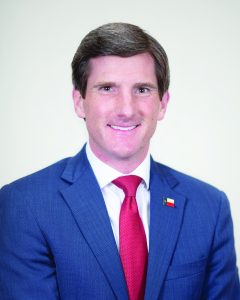
State Sen. Kevin Sparks co-sponsored a new law that ends a policy of investigating the anonymous reports that have swamped state agencies with phony complaints for years.
Signed into law by Gov. Greg Abbott, House Bill 63 lets Child Protective Services and its referral agency, the Texas Department of Family and Protective Services, go about their duties much more efficiently, said Sparks, a Midland Republican who represents Ector County.
“As Texans, we need to ensure the safety of our children in any situation,” Sparks said from Austin. “HB 63 allows for more accountability and protections for those involved in potential CPS and DFPS investigations.
“Without this necessary reform, both agencies would have struggled to verify reports that can complicate the issue with hours of wasted time on false allegations,” he said.

State Rep. Brooks Landgraf said he was “proud to vote for HB 63 because it makes children safer and families stronger.
“HB 63 strengthens the reporting process for child abuse and neglect by requiring individuals to provide detailed information, ensuring more accurate and reliable reports,” the Odessa Republican said.
“The bill also emphasizes the importance of confidentiality, safeguarding the identity of those making the report and protecting them from potential retaliation.
“Furthermore, HB 63 promotes accountability by making it a criminal offense to make false reports, discouraging misuse of the reporting system and preserving its integrity.”
Co-Sponsored by Republican Rep. Valoree Swanson of Spring, north of Houston, the law prohibits CPS and DFPS from accepting anonymous reports relating to child abuse or neglect.
With legislative committees having heard testimony that the agencies got over 12,000 anonymous complaints last year with only 1,000 being legitimate, a Sparks spokesman said the law “elevates all reporting to a privileged confidential status for the purpose of verifying the individual making the report while keeping all contact or identifiable information confidential.”
A person convicted of making a false report to the CPS or DFPS can now be charged with a state jail felony with possible punishment of six months to two years in prison or a third-degree felony, for which he or she may be sentenced to two to 10 years.
The committees were told that most of the false complaints were made by disgruntled former spouses.
“Individuals can still make anonymous reports to their local 911 authorities,” the Sparks spokesman said. “The law ensures that the rights of all parents involved are secured prior to the start of an investigation.
“Penalties will only occur if a person knowingly makes a false report. Confidential reporting remains a best practice with HB 63 in place; however, the exploitative loophole will close.”
Swanson said the law preserves the integrity of DFPS procedures, protects Texans against false and exploitative reporting and ensures privacy to families under investigation.
“I’m thankful to Sen. Sparks for working with me on this momentous bipartisan legislation to balance the needs of law enforcement and the constitutional rights of families,” she said. “Texas joins 19 other states in banning anonymous reporting, including Colorado and Arizona.”
Swanson said the law specifies what type of DFPS agents can have access to a complainant’s private information and it strengthens the language concerning confidentiality during investigations.
The legislators said HB 63 also protects the reporters of abuse or neglect from retaliation with its new identity verification requirement.
“It does not mitigate the ability of individuals to anonymously report potential cases of child neglect and abuse,” they said. “Law enforcement agencies can still receive and process anonymous reports relating to this issue.
“Currently CPS and DFPS cannot verify the identity of a caller, which enables exploitation of the system. HB 63 prevents this exploitation while providing additional protections to legitimate reporters.”
Sparks said CPS and DFPS “have a duty to safeguard our children.
“Their ability to pursue and investigate any legitimate instances of child abuse or neglect will further the duty of these agencies,” he said. “Families serve as the foundation for our communities.
“HB 63 enhances protections for families and community members while preserving privacy in reporting injustices committed against children.”



